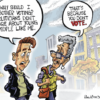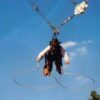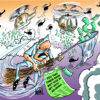Now, Wisconsin schools must teach Hmong, Asian American histories
![]()

Mon, 08 Apr 2024





Now, Wisconsin schools must teach Hmong, Asian American histories
Robert Besser
08 Apr 2024, 14:48 GMT+10
- This week, Wisconsin Governor Tony Evers signed into law a bipartisan bill requiring schools in the state to teach Asian American and Hmong American histories
- Current Wisconsin law requires K-12 schools to teach Black, Hispanic, and Native American histories
- Evers signed the bill at an elementary school in Wausau, home to some 4,700 Hmong, who make up 12 percent of the city’s residents
MADISON, Wisconsin: Wisconsin Governor Tony Evers has signed into law a bipartisan bill requiring schools in the state to teach Asian American and Hmong American histories.
Current Wisconsin law requires K-12 schools to teach Black, Hispanic, and Native American histories.
Evers signed the bill at an elementary school in Wausau, home to some 4,700 Hmong, who make up 12 percent of the city’s residents.
According to the Hmong American Center, Wausau has the highest per-capita Hmong population in the state and country.
Evers said in a statement, “The Hmong and Asian American communities are a critical part of our state’s history, culture, economy, and future. It is important that we celebrate our shared histories and honor the people who help make Wisconsin the state it is today.”
The Hmong fled to the mountains of Cambodia, Laos, and Vietnam after being persecuted as an ethnic minority in their ancestral lands in China. Thousands of them fought for the U.S. in the Vietnam War, but after Communist regimes took control of the region, they escaped to refugee camps in neighboring Thailand and, from the mid-1970s, resettled mainly in the U.S., most notably in California’s farm country, Minneapolis, and central Wisconsin.
The Hmong American Center said Wisconsin’s Hmong population of 50,000 places it third highest behind California at 80,000 and Minnesota at 70,000.
The measure had broad support in the Legislature, including from the state education department, the state teachers’ union, and the Wisconsin Council of Churches, and had no registered opponents.



















